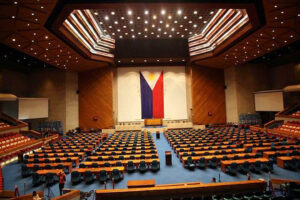Dynastic politicians seen hijacking party-list system in 2025 elections
RICH FILIPINOS seeking to enter politics and politicians whose terms have ended are likely to run for office through the party-list system, which could dilute sectoral representation at the House of Representatives, political analysts said.

By Kenneth Christiane L. Basilio, Reporter
RICH FILIPINOS seeking to enter politics and politicians whose terms have ended are likely to run for office through the party-list system, which could dilute sectoral representation at the House of Representatives, political analysts said.
About 80% of the more than 300 congressmen are district representatives, while the rest of the seats are allotted to party-lists, supposedly to help sectors push their legislative agendas.
“In the 2025 midterm elections, we are expecting more party-list groups who will have their nominees from powerful dynasties and nominees who are popular and rich,” Arjan P. Aguirre, who teaches political science at the Ateneo de Manila University, said in a Facebook Messenger chat.
“This tells us that party-list groups who do not belong to the wealthy, popular and powerful groups are having a hard time winning the system,” he added.
Congressmen have three-year terms and may be re-elected for a total of three consecutive terms.
The 1987 Constitution created the party-list system, but it was not until eight years later that an enabling law came to force.
“Since 2013, the average growth of the number of participating party-list groups is 21.3%. The biggest jump was in 2022, when we saw a 32% increase in participating parties with 43 seats to 177 from 134,” Mr. Aguirre said.
He added that some party-list nominees had been “linked to a dominant dynasty in a locality, wealthy industry, or entertainment or popularity-oriented venture.”
Party-list groups are now also campaigning through “popular nominees,” he added. “This is one of the effects of the Supreme Court decision to open the space of the party-list system to mainstream parties and groups alongside sectoral groups of the marginal sectors in society.”
The tribunal in 2013 ruled political parties could also participate in the party-list system, allowing “ideology-based and cause-oriented parties” to run for a seat in the House.
The landmark ruling “is a step in the right direction,” Edmund Tayao, president of Political Economic Elemental Researchers and Strategists, said in a separate Viber message. “The problem is we don’t have a working appreciation of what a real political party is.”
“We don’t have ‘real’ political parties so we have a flawed idea of what it is, thus preventing a much-needed appreciation of their significance,” he added.
He said campaign rules for party-lists are “deficient” because these focus on their nominees instead of the groups themselves.
“The whole setup is problematic,” Mr. Tayao said. “The presence and dominance and further strengthening of dynasties is due largely to the prevailing political system,which is… an archaic political setup. It will never have room for genuine marginalized groups.”
The Commission on Elections (Comelec) should revise the Election Code by incorporating “fundamental changes” in what defines a political party, he said.
In a statement on Sunday, militant group Bayan Muna condemned what it called the exploitation by the political elites of the congressional party-list system, urging the House to take up a bill preventing the “infiltration of political and economic elites” in party-list groups.
Filed in 2022 by Party-list Reps. France L. Castro, Arlene D. Brosas and Raoul Danniel A. Manuel, House Bill No. 211 seeks to restore the “original purpose” of the party-list system by ensuring that registered groups truly represent marginalized groups through a public hearing by the Comelec.
The bill disqualifies former officials from President down to town mayors, as well as ex-Cabinet members. “Senators and congressmen must also be disqualified,” Neri J. Colmenares, one of Bayan Muna’s nominees in the midterm elections next year, said in the statement.
“You already won in the senatorial or congressional elections because of your wealth, and now you still want to join the party-list?” he asked. “We owe it to the Filipino people to protect the spaces intended for their genuine representation,” he added in Filipino.
















